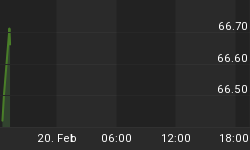If Joe Biden is elected, “Carson City will become a ghost town and the Christmas season will be canceled,” U.S. President Donald Trump said earlier this month at a rally, but new retail sales figures and holiday spending estimates tell a different story.
There are obvious flaws in the president’s proclamation, starting with the fact that if elected, Biden would not take office until January 20th, well after the Christmas season and more feasibly into the “gift return” season.
But the biggest flaw was this: It seems that nothing and no one can ruin the holiday season for Americans. Not a pandemic, millions of lost jobs, bankruptcies, a struggling economy, social distancing or even a lockdown can crack the holiday spirit. Or more importantly, it can’t ruin holiday spending, which is already breaking new records.
As retailers encourage customers to shift to online shopping in order to avoid crowds during the pandemic, online sales are set to reach $189 billion this holiday shopping season.
According to Adobe Analytics, that is an increase of 33% from last year’s holiday spending.
Black Friday online sales are set to reach ?$10 billion, up 39% from 2019, while Cyber Monday will hit $12.7 billion, an increase of 35%, the report found.
"This year is unlike any in the past, and for the first time we are no longer referring to peak holiday sales as Cyber Week -- it's now Cyber Month," the analysis said.
They also estimate that a fresh stimulus package from the government would increase the holiday online sales by another $11 billion.
With cases of COVID-19 rising across the country, medical experts have warned that coronavirus cases could spike if people travel out of town and celebrate indoors.
Anthony Fauci, one of the nation's top COVID-19 medical experts, recently told CBS news that people should change the holiday celebrations this year.
"Namely, you may have to bite the bullet and sacrifice that social gathering unless you're pretty certain that the people that you're dealing with are not infected,” he said.
The CDC recently issued detailed guidance for hosting, attending and traveling to holiday celebrations this fall and winter, noting that small household gatherings are “the increasing threat right now”.
According to CDC guidelines, the safest option is to celebrate the holidays virtually or just with the members of your own household.
A survey by Morning Consult shows that 53% of Americans will host their family’s usual holiday get-togethers as usual, while 47% will cancel.
The same survey found that three-quarters of Americans will be having smaller-than-usual gatherings, while 68% will be travelling less than usual for the holidays.
Given the circumstances, this season could bring a bit of financial relief as gatherings get smaller in size, with fewer gifts exchanged between less immediate family members and friends.
Even though financial experts and various consumer groups are advising consumers to remain disciplined with holiday spending, few are listening.
Ahead of the last holiday shopping season, about 35 million Americans still had holiday credit card debt left over from 2018. And despite some studies showing that 13% of American shoppers were planning to completely boycott holiday spending, that failed to play out in any quantifiable manner.
On the contrary, the 2019 holiday shopping seasons broke all kinds of records, with holiday retail sales rising 3.4%, while online sales jumped a record 18% compared to the previous year.
Americans racked up about $1,325 in holiday debt on average, topping the $1,000 mark per shopper for the first time, according to MagnifyMoney’s survey. And now, despite a pandemic, they might just break new records again.
By Tom Kool for Safehaven.com
More Top Reads From Safehaven.com:

















